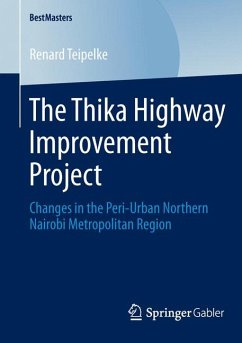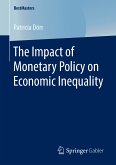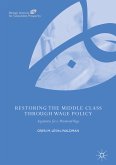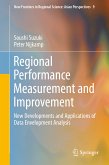Theory and practice of high-capacity infrastructure projects are the major focus in the development of countries in the Global South. Aiming at a more fine-grained understanding of such projects, Renard Teipelke studies the Thika Highway Improvement Project (THIP) and its outcomes in the peri-urban Northern Nairobi Metropolitan Region. The THIP is a large transportation infrastructure project that expanded the dual carriageway Thika Road into an eight-lane highway from 2008 until 2012. Based on a strategic mix of methodological approaches, such as interviews with experts in Kenya, literature research, and field visits, the 'black box' THIP is opened up. In the empirical analysis, the project's idea, its design, and its implementation are studied. It is concluded that the project's outcomes are ambivalent - partly living up to the expectations of THIP proponents, but not resulting in shared benefits for all concerned stakeholders due to flaws in managing the development in this peri-urban transport corridor area, thereby fitting into the Kenyan context of politics and planning.
Contents
- Road Infrastructure Economics
- Nairobi: A Globalizing City and Its Challenges
- An Introduction to the THIP and Its Context
- The Outcomes of the THIP
Target Groups
- Researchers and students in the fields of urban development andinfrastructure planning
- Professionals in these areas
The Author
Renard Teipelke wrote his master thesis under the supervision of Prof. Dr. Susanne Heeg and Dr. Veit Bachmann at the Department of Human Geography at Goethe University Frankfurt.
Dieser Download kann aus rechtlichen Gründen nur mit Rechnungsadresse in A, B, BG, CY, CZ, D, DK, EW, E, FIN, F, GR, HR, H, IRL, I, LT, L, LR, M, NL, PL, P, R, S, SLO, SK ausgeliefert werden.









